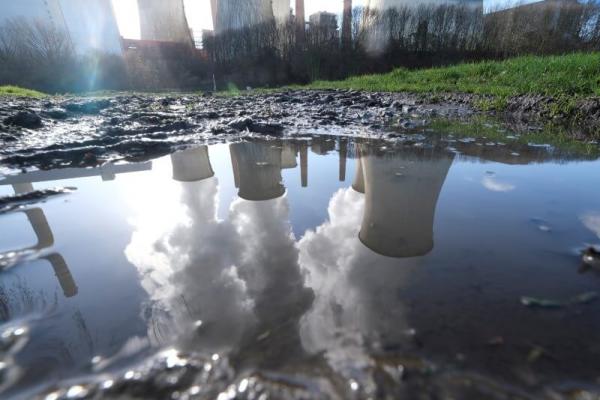In the course of a few terrifying weeks, humanity has rediscovered our superpower: We can make radical change more quickly than we ever imagined. Because we value our own life and the safety of others, we have overturned “business as usual.” Suddenly, we have modified our behavior and brought a halt to society as we have known it.
It must be said that not everyone is on board. Some people are refusing to cooperate and a small but noticeable set of leaders are unwilling to heed the urgings of the Ceners for Disease Control.
Nevertheless, for most of us, social distancing is the new normal, as is a new awareness of our interdependence. For the United States, this change is especially remarkable. As America trims its mainsail of rugged individualism, we are taking up our oars and beginning to row together.
Most Americans alive today have forgotten that we made a similar rapid, large-scale change only three generations ago during World War II. Edsel Ford repurposed Ford’s assembly lines and workforce to make B24 Liberator bombers. Countless churches dug up their front lawns to plant victory gardens. Tens of millions of Americans stopped eating meat so our troops could be fed. In these and other ways, our superpower enabled us to accomplish what many at the time said was impossible. We can do it again. The coronavirus demands nothing less.
The climate crisis demands this of us as well. Directed by our climate scientists, America needs to make the rapid, systemic changes that climate science says we must, and current technology says we can.
It’s a Fact: We Can Do This!
- Across the globe, ordinary people have changed their behavior in profound ways.
- Leaders of country after country, driven by the alarm of doctors and scientists, have urged or imposed unprecedented restrictions.
- Courageous health care providers are treating a flood of new patients who are drowning from contagion.
- Artists, musicians, and other creative souls, through online performances, remind us that we are not alone, even in our isolation.
- Churches are worshiping, praying, and otherwise connecting remotely.
- And early this morning, the Senate accomplished the impossible. It passed a $2 trillion relief package that assists ordinary workers, the unemployed and other often overlooked groups. This remarkable, bipartisan achievement gives us hope that we are rowing towards toward a more just and humane understanding of prosperity, progress and purpose.
An Opportunity for the Church
It’s tempting to ask why, if you fed your neighbors during the time of the earthquake and fire, you didn’t do so before or after.
-Rebecca Solnit
Perhaps our developing response to the coronavirus is Act I of a drama with two Acts. Already, resilient communities, many of them led by churches, are responding by letting go of old assumptions and making space for new behaviors. Entrepreneurs, communities, and businesses are creating new ways to connect, support, care for, and be in solidarity with one another.
As this new normal settles in, perhaps we will recognize in our relationships:
- the unifying power of shared vulnerability
- the expansive fullness of interdependence
- the contagious generosity of caring for the least of these among us
The coronavirus crisis presents the church with an opportunity to help humanity reorient what we prize: spiritual and moral growth in place of material growth, resilience in place of fear, interdependence in place of rugged individualism, cooperation in place of competition, sharing in place of hoarding.
Let us pray that in Act II, we will commit to use all of our abilities to rebuild civilization’s foundation upon the cornerstone of environmental and economic justice for all and a livable world for our children.
Got something to say about what you're reading? We value your feedback!




